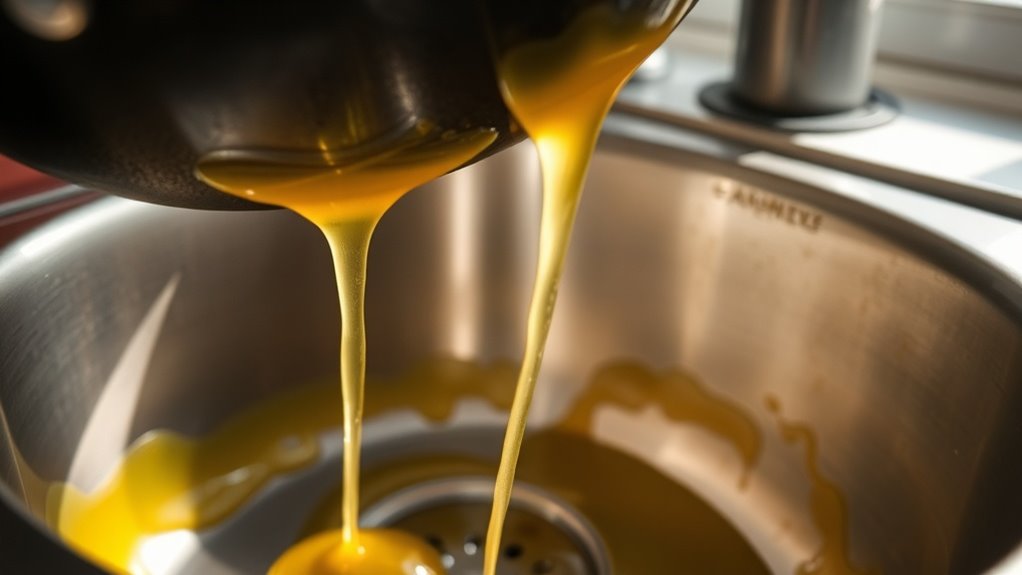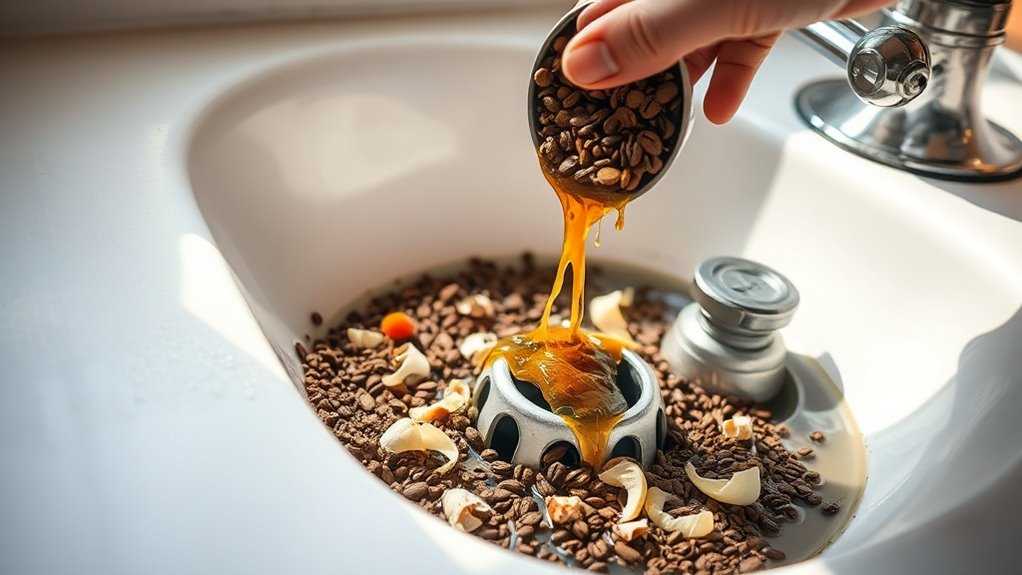Table of Contents
5 Everyday Habits That Are Quietly Destroying Your Plumbing System
We’re unknowingly damaging our plumbing every day by pouring grease down drains, overloading garbage disposals with fibrous foods, using harsh chemical cleaners, ignoring small leaks, and flushing non-flushable items. Even a tablespoon of cooking oil can create stubborn blockages, while those “flushable” wipes aren’t actually flushable at all. Kitchen sink strainers, drain snakes, and natural cleaning alternatives like baking soda and vinegar can help maintain your pipes. Toilet paper is the only paper product truly safe for sewage systems. Water pressure regulators prevent pipe stress, while pipe insulation prevents freezing in winter months. Professional plumbers recommend annual inspections to catch issues before they become emergencies. Preventing these common mistakes can save thousands in repairs and extend your plumbing’s lifespan for years to come.
Pouring Grease and Oil Down Kitchen Drains

While many of us are careful about what goes into our garbage disposal, we’re often guilty of a plumbing cardinal sin: pouring grease down the kitchen drain.
Even a single tablespoon of cooking oil, bacon fat, butter, lard, or vegetable shortening can solidify as it cools, creating stubborn blockages in pipes, drains, and sewer lines that hot water and dish soap won’t dissolve.
What’s worse, this grease combines with other debris like food particles, hair, and paper products to form massive “fatbergs” – nightmarish clogs that are expensive to remove and often lead to emergency kitchen backups and overflows.
Plumbers, municipal water authorities, and sewage treatment facilities consistently identify these as leading causes of significant plumbing problems and environmental contamination.
The solution is simple: keep a designated “grease jar” or container for leftover grease.
Overloading and Misusing Garbage Disposals
Overloading and Misusing Garbage Disposals

Your garbage disposal might seem like a magical food-vanishing machine, but it’s actually a finely-tuned appliance with definite limits. Overloading it with starchy or fibrous foods creates serious clogs and backups in
